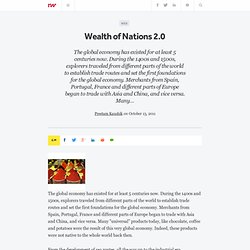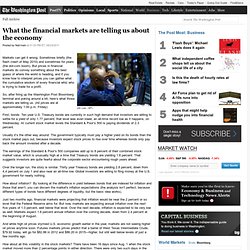

English - The Language of Global Business? Is A Bellwether of China's Economy. The cost of Olympic gold - Inside Story. An Olympic gold medal is priceless, but it comes at a cost for the host country, the athletes and other nations.

Does that mean that those with little money have to pay for a chance at sporting glory? According to one Australian sports doctor, the cost is as much as $40m for each gold medal his country has won in the last 20 years. So what happens if you do not have that kind of money? Can sport at the top level be fair when the difference between rich countries and poor countries is so massive? Money invested by the top Olympic countries can pay dividends.
Australia blames a slash in funding for their poor medal haul at London 2012 - in the first week of the games they won only one gold medal. Individually, away from headline sports, personal funding poses a hurdle. So in Africa it is no surprise that it is not in expensive, glamour pursuits that their athletes succeed. The reality is probably somewhere in between. Russia, The Next Silicon Valley? Niall Ferguson: China is in Lead Position for the Best Place to do Business. Wealth of Nations 2.0. The global economy has existed for at least 5 centuries now.

During the 1400s and 1500s, explorers traveled from different parts of the world to establish trade routes and set the first foundations for the global economy. Merchants from Spain, Portugal, France and different parts of Europe began to trade with Asia and China, and vice versa. Many "universal" products today, like chocolate, coffee and potatoes were the result of this very global economy. Indeed, these products were not native to the whole world back then. From the development of sea routes, all the way up to the industrial era, "products" continued to be at the core of the global economy. Preetam Kaushik is a writer, web 2.0 expert and freelance journalist covering the industry trends of business, IT and e-commerce. The 20th Century Ends, a New Era Emerges In the 1980s, Robert Solow, a Nobel-prize winning economist, had joked about how he saw computers everywhere except in productivity statistics.
Photo by Frank Kovalchek. Labour markets: Growth is Texas' secret. What the financial markets are telling us about the economy. (Jin Lee - AP) Markets can get it wrong.

Sometimes briefly (the flash crash of May 2010) and sometimes for years (the dot-com boom). But prices in financial markets do convey something about the best guess of where the world is heading, and if you know how to interpret prices you can gather what the cumulative wisdom of every financial whiz who is trying to trade for a profit. So, after firing up the Washington Post Bloomberg terminal and poking around a bit, here’s what those markets are telling us. (All prices are at approximately 1:00 p.m. First, bonds. Usually it’s the other way around: The government typically must pay a higher yield on its bonds than the stock market pays out, because investors expect stock prices to rise over time whereas bonds only pay back the amount invested after a decade.
The earnings of the Standard & Poor’s 500 companies add up to 8 percent of their combined stock market value, which is unusually high at a time that Treasury bonds are yielding 1.8 percent. Print Story: Starbucks to triple outlets in China by 2015: report. Asian markets gain confidence from US gains.